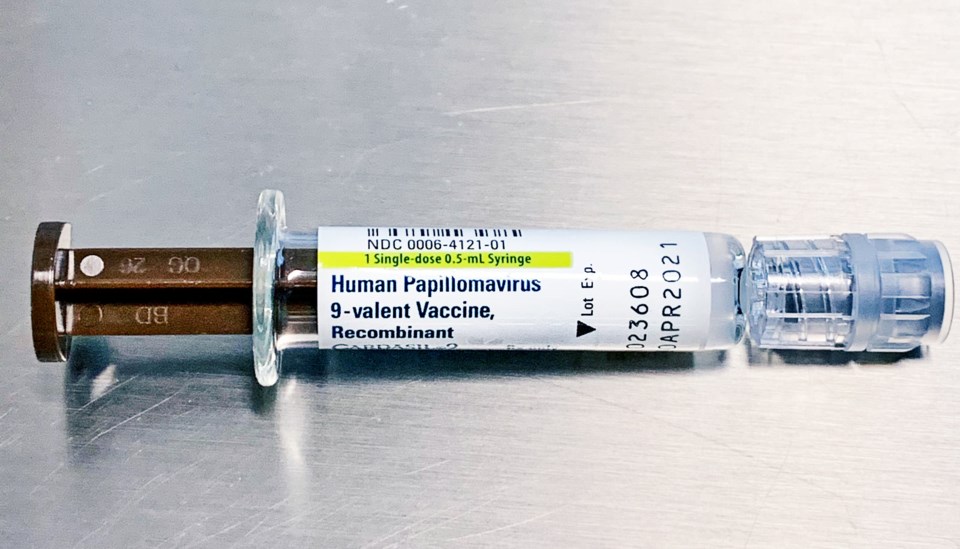ONTARIO – Monday marked the first day of National Immunization Awareness Week; therefore, The Federation of Medical Women of Canada is launching a task force to address concerns surrounding the Ontario school-based Human papillomavirus (HPV) immunization program.
Human papillomavirus is a severe disease affecting women of all ages, whereas high-risk cases cause cervical cell changes that may lead to cervical cancer. 90 per cent of cervical cancers are preventable by having regular Pap tests and treating the abnormal cells when necessary.
However, there is no cure for HPV due to the different strains of the virus. Currently, there are over 100 different types of HPV, with cases evaluated into two groups: low-risk and high-risk. The best way to prevent HPV is to ensure the public, particularly young adults, have access to vaccinations and adequate sex education.
The Federation of Medical Women of Canada is releasing a White Paper. A task force comprising family physicians, cancer specialists, pharmacists, public health representatives, and a school board representative wrote to address the Ontario school-based HPV immunization program crisis. The COVID-19 pandemic has disrupted school-based vaccination in Ontario, leaving thousands of children at risk for HPV-related cancers.
All Grade 7 students in Ontario can currently receive the HPV9 vaccine supplied by Public Health Units at school through the school-based immunization program. This vaccine protects against nine types of HPV strains and decreases the risk of six types of cancer. About 60 per cent of 12-year-olds were immunized in 2018-19. Alarmingly, this rate dropped to 5.2 per cent in 2019-20 and to only 0.8 per cent in 2020-21.
"To increase vaccination rates, it is essential healthcare providers, the province, school boards and public health units all recognize their roles in facilitating vaccinations to ensure young people in Ontario are fully immunized from HPV and thus protected from HPV related cancers and infections," said Dr. Vivien Brown, chair of the HPV Immunization Task Force, vice-president, North America for the Medical Women's International Association, chair & co-founder of HPV Prevention Week in Canada, and a past president of FMWC. "We must act quickly and work together as cancer won't wait for the next election or school year."
The task force is proposing actionable short-term and long-term solutions to Ontario's HPV vaccination crisis focusing on four key areas:
- Access to vaccines
- Education about vaccines
- Communicating the benefits of vaccination
- Improving cross-ministerial collaborations to develop more effective immunization
The task force's series of recommendations focus on expanding access to immunization against vaccine-preventable cancers using a multi-faceted approach to remove the barriers to access for unvaccinated populations, such as catch-up campaigns in high schools or mobile clinics. Additionally, the recommendations call for an increase in education about cancer prevention through vaccination and highlight the safety and efficacy of the HPV vaccine.
In a statement from Prime Minister Justin Trudeau regarding Immunization Week, he said, "The pandemic further illustrated what we have known for a long time: vaccination is a proven and effective public health tool. Vaccines have contributed to protecting generations of Canadians from diseases that put our health at risk and threaten our lives. During the pandemic, many in Canada and around the world have fallen behind in routine vaccinations for other vaccine-preventable diseases, so I encourage all Canadians to stay up to date on their routine vaccinations, such as annual flu vaccines.”
However, HPV exposure is likely inevitable for three-quarters of all Canadians. While most infected people clear the virus, those who do not can develop HPV-related cancers and precancers. Most people who have HPV may not show any signs or symptoms, which means they can infect others without knowing it.
Dr. Vivien Brown continues, "With swift action taken by all parties in our province's healthcare network and more work being done to educate patients and parents of the risks of delaying HPV immunization, young people in Ontario will receive the protection they deserve against vaccine-preventable cancers and HPV infections."
Suppose Canada's vaccination, screening and testing targets are not reached, including increasing HPV vaccine uptake to 90 per cent by 2025. In that case, 6,810 women will develop preventable cancers, and 1,750 women will die of preventable diseases by 2050. Alternatively, achieving an HPV vaccination rate of over 90 per cent by 2025 and effective screening and treatment could eliminate cervical cancer by 2040.
